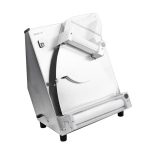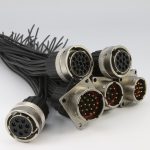
Electric motors have revolutionised many industries and play a significant role in modern society. Electric motors convert electrical energy into mechanical energy, ensuring practical applications in various settings, from industrial machinery and transportation to household appliances and toys. Bespoke motors work by applying a magnetic force to a wire coil, generating rotational motion. The types, sizes, and power of electric motors can vary greatly depending on their intended use. Advancements in technology have led to more efficient and environmentally friendly designs, including AC Motors. This guide provides basic knowledge about AC motors, their types, applications, and some essential factors to consider when selecting AC motors.
What Are AC Motors? A Brief Overview of Their Types
An AC motor, or alternating current motor, is an electric motor type that operates on an alternating current power supply. They are preferred over DC motors in many applications due to their simplicity, low cost, and easy integration into existing electrical systems.
There are several types of AC motors, including:
- Induction Motors – An AC induction motor is the most used type of AC motor that induces a magnetic field in a rotor placed within a stator. However, the rotor follows the rotating magnetic field created by the stator, causing the rotor to spin.
- Servo Motors – Servo motors are used in applications requiring high precision and accuracy and are common in CNC machines, robots, and automation systems.
- Synchronous Motors – These motors operate at a constant speed synchronized with the AC power supply’s frequency. Synchronous motors are widely employed in high-precision applications, such as clocks or timing applications.
- Brushless DC Motors: These motors are like induction motors, but they use electronic circuits to control the stator’s magnetic field, making them more efficient and reliable.
Applications of AC Motors:
AC motors are used in a wide range of applications due to their high efficiency, reliability, and cost-effectiveness. Here are some typical applications of AC motors:
- Industrial Machinery: AC motor is used in a variety of industrial machinery, such as compressors, pumps, fans, conveyors, and mixers. These motors can deliver high power and torque for heavy-duty industrial applications.
- HVAC Systems: AC motor is commonly used in heating, ventilation, and air conditioning (HVAC) systems, powering fans and blowers that circulate air through the building. They are also used in refrigeration systems to power air cooling compressors.
- Household Appliances: AC motor is used in various household appliances and provide the power needed to run the appliances, such as washing machines, dryers, dishwashers, refrigerators, and vacuum cleaners.
- Electric Vehicles: AC motors are highly efficient and can provide high torque at low speeds and are used in electric vehicles to provide propulsion.
- Renewable Energy Systems: AC motor is used in renewable energy systems, like wind turbines and solar trackers. Moreover, these motors help to convert wind and solar energy into electrical energy that, in turn, power homes and businesses.
- Robotics: AC motors are widely used in robotics to provide the power needed to move the robot’s joints and limbs. In addition, they are highly precise and can be controlled with great accuracy, making them ideal for use in robotics.
- Aerospace: AC motors also operate in harsh environments, making them ideal for a variety of aerospace applications, such as aircraft engines, hydraulic systems, and landing gear systems.
Selection Criteria for AC Motors:
AC motors come in different types and sizes, and selecting the right motor for a specific application can be challenging. Some of the crucial factors include:
- Power Requirements: The first factor to consider is the application’s required power, determining the motor size and type needed. The power requirement is usually measured in kilowatts (kW).
- Efficiency: Motor efficiency is one of the essential factors to consider as it affects operating costs. A more efficient motor consumes less energy and has lower operating costs.
- Speed Requirements: The motor’s speed requirements are another critical factor. The motor should have the necessary speed range to operate the equipment efficiently.
- Operating Conditions: The operating conditions, such as temperature, humidity, and altitude, will affect the motor’s performance. Therefore, selecting a motor that can operate under specific applications’ conditions is essential.
- Load Characteristics: The characteristics of the load being driven by the motor will determine the type of motor needed. For instance, a constant torque load requires a different motor than a variable torque load.
- Cost: The cost of the motor should be considered concerning its benefits. It is essential to balance the cost of the motor with its efficiency and operating costs.
- Brand Reputation: Choose the best brand AC motor to ensure the build quality and guaranteed performance for long-lasting periods.
The Bottom Lines:
AC motors are electric motors widely used in many industrial and commercial applications. There are various AC motors, each designed for a specific purpose. It is crucial to choose a motor that meets the application’s demands and provides reliable performance over time.





















